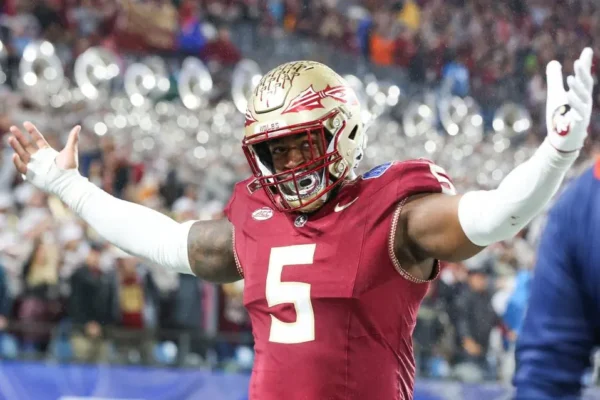In the evolving landscape of college football, it’s crucial to keep an eye on the maneuvers that define the top programs. Tuscaloosa is no stranger to attracting headlines for its high-profile hirings and a methodical approach to recruitment and coaching that often sets the standard in the sport. The latest developments around Alabama’s football program signal both a continued commitment to excellence and a potential shift in how teams might approach building their coaching and support staff in the future.
The recent appointment of Eron Hodges as the new associate director of player personnel is a testament to the program’s desire to strengthen its recruitment strategy further. Hodges, with a resume that spans several reputable programs including TCU, Purdue, and Ohio State, brings a wealth of experience and a track record of successful off-field recruitment. His tenure in the U.S. Navy and various roles across multiple institutions underscore his versatility and deep understanding of the intricacies of player development and scouting.
Adding to the strategic buildup, the hiring of Jatavis Sanders as director of recruiting strategy earlier forms part of a broader vision aimed at fortifying the Alabama program’s foundations. These moves are indicative of a larger trend in college football where the critical roles of off-field personnel are increasingly recognized for their impact on a program’s success.
The focus on enhancing the coaching staff’s capabilities doesn’t end with recruitment. Kalen DeBoer’s insights at the Senior Bowl shed light on the importance of having a coaching team that is not just skilled but also deeply integrated with the players’ learning and developmental processes. DeBoer’s enthusiasm for next week’s training sessions back on campus reflects the anticipation and preparation for an era of reinforced offensive plays and systems.
Kane Wommack’s selection as the defensive coordinator underscores a focused approach to revitalize Alabama’s defensive strategy. The acknowledgment by DeBoer of Wommack’s strengths, especially in terms of energy and organizational skills, hints at a dynamic shift towards a more vibrant and cohesive defense setup. This move, seemingly strategic, underscores the program’s commitment to addressing previous gaps and strengthening the squad from a holistic perspective.
The ripple effect of new coaching philosophies and strategies at Alabama could be felt through the comments of Washington QB Michael Penix. His experiences and observations confirm the transformative potential of Ryan Grubb, Alabama’s new offensive coordinator, and Scott Huff, the offensive line coach. Grubb’s transition from an offensive line coach to a quarterbacks coach brings a unique perspective that seems to resonate well with team members, especially in terms of communication and problem-solving during games.
The collective insights from the coaching staff and the strategic hirings point towards a meticulous approach to building a robust support system around the players. This setup not merely aims at immediate successes but appears to be a calculated effort in cultivating a sustainable, high-performing football program.
What sticks out from these developments is the blend of proven strategies and innovative approaches to coaching and player development. As Alabama gears up for the coming seasons, the groundwork laid by these hirings and the focus on strategic staff augmentation could well be the blueprint that other programs aim to replicate. The essence of these moves signals a clear message: the drive for excellence remains unabated in Tuscaloosa, with an eye firmly on the future.





